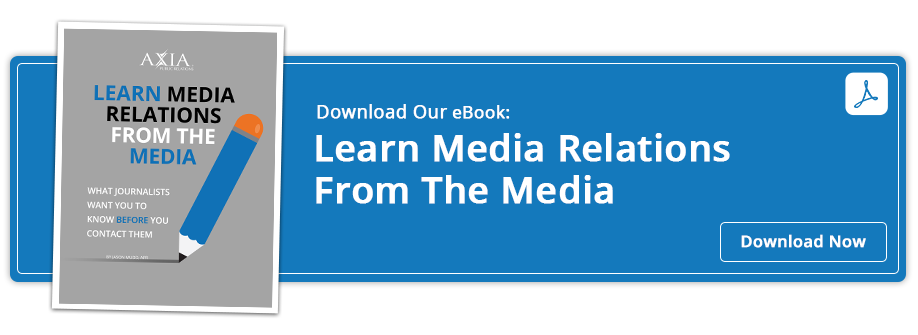 Learn the right way to handle media relations for increased news coverage and visibility
Learn the right way to handle media relations for increased news coverage and visibility
You grant a journalist an hour-long interview and your company doesn’t even get mentioned in the story. Or, perhaps a news outlet covers your company, and you weren’t contacted for a comment. Dealing with the media can be exasperating. Nonetheless, it may surprise you to know that they have just as many complaints about you.
Most public relations departments and their public relations firms have a love/hate relationship with journalists.
However, it doesn’t have to be that way, especially if you learn the behavior that journalists dislike and avoid using these tactics at your company. (We give a special thanks to our friends and inbound marketing partners at HubSpot for putting together this presentation.)
Here are six approaches you should not take when you are working with the media.
DON’T MAKE THESE MISTAKES:
- Try to tell the reporter how to do her job.
Many company and PR reps are uncomfortable giving information to journalists and trusting them to handle it correctly. As a result, they explain and over-explain concepts like exclusives, embargoes and deadlines.
- Ignore the reporter’s decision.
Sometimes no means no and badgering the journalist will not change that. Sending numerous follow-up emails fall into this category. If the reporter is interested, she will contact you. Of course, you want to make every effort to generate positive news coverage for your company, but calling constantly to push your story is more likely to backfire than to achieve your goal.
- Use corporate-speak.
An interview can be friendly and personable, unless you let fear and lawyers get in the way. When your spokesperson is prepared and well-trained, you can let the human side of your company show through and not worry so much about potentially spilling secrets or making inappropriate comments.
- Mention other people or news outlets that are interested in your story.
Journalists hate this. It indicates that either you think the reporter is too stupid to understand how great your story is on his own or you are trying to pitch him old news.
- Attempt to control the editorial process.
Unfortunately, you do not get to control when, how or even if a story will be published. Also, since you are not the editor, it’s highly unlikely that the reporter will allow you to proofread the article ahead of time. You must trust that you have done your job well and included all the pertinent facts, and then let the reporter take it from there.
- Forget to use PR to its full advantage.
A major complaint from journalists is that companies send pitches without doing research or building relationships first. They also do a poor job of tailoring a story with the right angles to make it interesting to the media outlets’ audiences. These are things that an expert PR agency does best.
At Axia Public Relations, we specialize in media relations and have years of success in getting our clients the news coverage they need and deserve. To find out more about how you can help journalists and increase your news coverage, contact us or download our e-book Learn Media Relations from the Media today.

 Lisa Goldsberry is a blogger for Axia Public Relations with more than 15 years of public relations experience. She specializes in business and technology PR. Lisa has worked for Axia since December 2013. Learn more about Lisa Goldsberry. Connect with Axia on Twitter @axiapr or tell us what you think in the comments below.
Lisa Goldsberry is a blogger for Axia Public Relations with more than 15 years of public relations experience. She specializes in business and technology PR. Lisa has worked for Axia since December 2013. Learn more about Lisa Goldsberry. Connect with Axia on Twitter @axiapr or tell us what you think in the comments below.
Featured image credit: 123rf.com
Topics: media relations, public relations


Comment on This Article